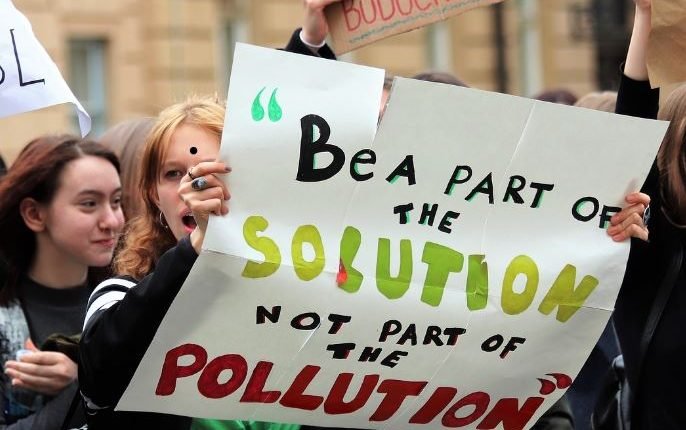Editorial . . . . . . . .
For decades, the human race has been witnessing the distressing and harmful effects of environmental degradation all over the world, and the main responsible factor is none other than human beings’ rash actions in the pursuit of satisfying their endless wants and greed of various types in the name of progressing on various fronts. As a result, the entire world is experiencing the visible problem of various types of pollution, such as air pollution, soil pollution, and water pollution, which has resulted in the development of numerous diseases, disorders, temperature rise, sea-level rise, climate change, ecological imbalance, loss of biodiversity, flood, ecosystem destruction, drought, erratic rainfall, and so on, causing great hardship to human beings’ peaceful and developmental lives on a sustainable basis. ill-planned industrialization, urbanization, extensive use of automobiles, excessive exploitation of natural resources, increasing population pressures, intensive and injudicious agricultural practices, injudicious use of chemical fertilizers and pesticides, deforestation, forest fires, excessive use of plastics, and other numerous sources of developmental activities capable of emitting various pollutant. As a result, all issues that are causing, or are capable of causing, environmental pollution must be understood in the right ways and to the right extent by all human beings throughout the world, and remedial fruitful actions must be implemented at the right time and place on a very long-term basis with mass cooperation at all levels.
Various national and international level reports have documented the quantity of pollution in the environment on various occasions, finding that pollution poses an extensive threat to mankind’s peaceful existence. Nearly 10 million hectares (about 25 million acres), of agricultural land, are lost each year due to erosion, waterlogging, and salivation, and another 20 million hectares is abandoned due to degraded soil quality. World Bank further revealed that deforestation and forest degradation contribute about 12% of the world’s greenhouse gas emissions. Currently, 3.2 billion people – 40% of the world’s population– suffer from the continued degradation of ecosystems, for example by losing access to fertile soil or safe drinking water. As a result, there are various dimensions of environmental contamination, each with a different dimension that impairs our human existence, civilization, peace, and progress.
As a result, there are numerous published reports or study findings that show that environmental contamination poses a hazard to humankind. Climate change, temperature rises, global warming or the greenhouse effect, soil degradation, the emergence of the dreaded disease, pests, and other natural calamities or disasters are all threats to our human civilization and the peaceful and safe existence of human life, as well as other wildlife. So, one thing is evident we must reduce or eliminate pollution to the greatest extent possible, and this will necessitate ongoing, fruitful action. WED is a global forum for public outreach, with over 143 nations participating each year to raise awareness about environmental challenges such as marine pollution, human overpopulation, global warming, and subsistence farming. Because environmental pollution poses a significant threat to humanity’s peaceful and sustainable existence, there is always a need to commemorate a significant event such as World Environment Day in a meaningful way. It will be a continual event for the greater good of humanity and its desire to satisfy diverse wants or requirements, but not at the expense of the environment and its resources on an unsustainable basis. Ecosystems, or their proper use and restoration, play a significant or critical role in achieving a very pollution-free environment, as well as the restoration of ecological balance, biodiversity, and many other things, and this is recognized multinational organization has taken a praiseworthy strategy for the greater good of mankind. This isn’t to say we should concentrate all of our efforts on a single source of pollution. Rather, all sources of pollution must be properly handled at the right time and in the right place. Only then can humans anticipate a highly appealing and long-term environment that is free of contaminants and has few negative consequences.
As a result, this year’s World Environment Day theme represents the tagline of sustainable environmental management as ‘Only One Earth,’ with a focus on “Living Sustainably in Harmony with Nature,” where we humans will play a critical role. As a result, there is a constant need to protect, prevent, and control our earth’s ecosystem from the negative impacts of global environmental degradation. For this, we must all recognize the grave dangers of environmental pollution at all levels, regardless of caste, creed, institutional, or geographic boundaries, and we must be successful in the true sense of the word in our fight against environmental pollution through honest, sincere, effective, and dedicated fruitful efforts in the form of the idea, innovation, action, skill, management, monitoring, and assessment of all efforts and actions of suitable policies and programmes at the proper time. Otherwise, our beautiful earth will no longer be suitable for long-term living in peace, wealth, and safety.




